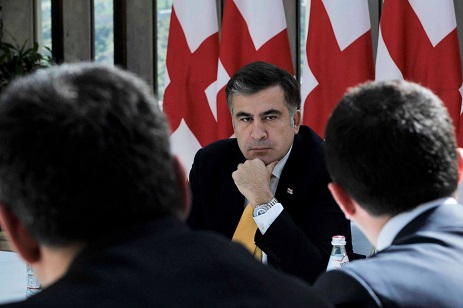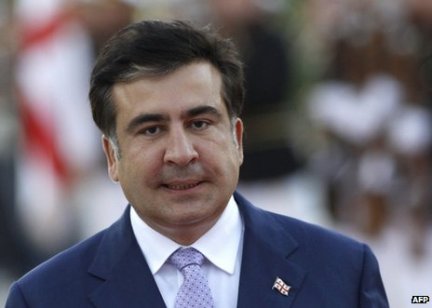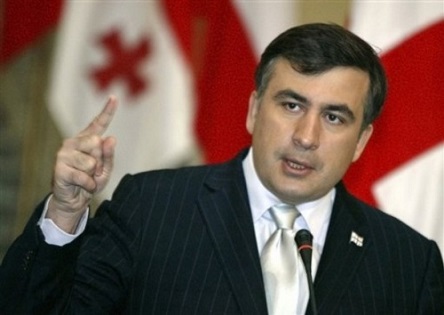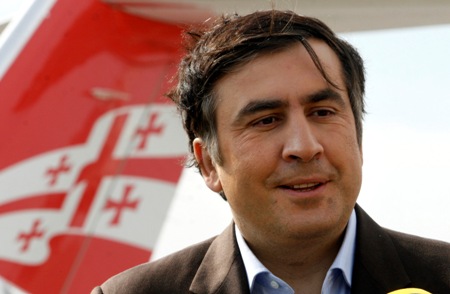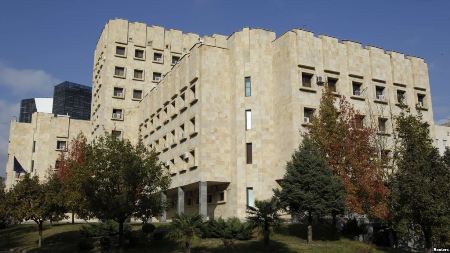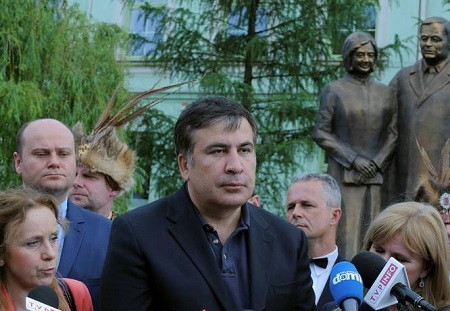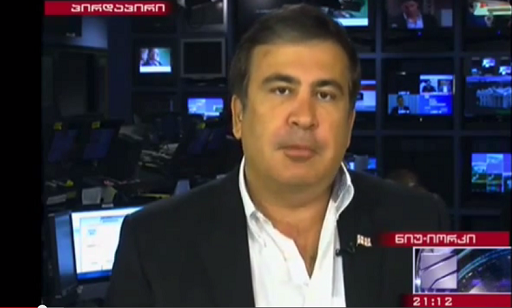Saakashvili’s pre-trial detention lawful, says human rights watchdog
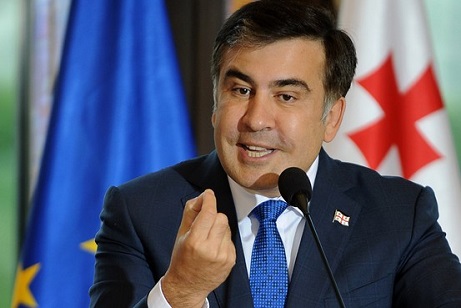
A Georgian legal advocacy and rights watchdog group says imposing preventative measures on Georgia’s former president Mikheil Saakashvili is justified.
Local advocacy group Georgian Young Lawyers’ Association (GYLA) examined Saakashvili’s court hearing and subsequent decisions, and came to the conclusion there was nothing to suggest the court’s ruling of ordering pre-trial detention on Saakashvii in absentia was unjustified or a violation of the law.
In a long statement released on August 8, GYLA discussed both sides of the argument that were voiced by the prosecution and defence during a hearing where the prosecution filed a motion to Tbilisi City Court asking for pre-trial detention be imposed on the ex-leader.
After analyzing the issue, GYLA concluded the decision to impose pre-trial detention on Saakashvili was justified. However the organization said it was not in a position to determine the validity of the charges against Saakashvili, as it did not have access to the case file.
"It is beyond doubt that the case against the ex-president is of political significance,” GYLA said.
"Although the Prosecutor’s Office is not obligated to under the law, but into account the high public interest, GYLA considers it appropriate for the Prosecutor’s Office to make public all the evidence which the prosecution’s case is based on,” GYLA said
By releasing all information and making the case file public would allow members of society and all interested groups to access the case details.
Meanwhile, during the five-hour hearing on August 1, the prosecution argued Saakashvili had repeatedly avoiding cooperating with the investigation and the prosecution was left with no other option than to ask for his pre-trial detention in absentia.
Saakashvili was first summoned by the Prosecutor’s Office for questioning in March. He declined and was offered the chance to be questioned via video-link, which he also declined.
The Prosecution argued Saakashvili possessed both financial means and influence to exert pressure on witnesses involved in the case. The Office claimed Saakashvili and his co-accused - former high-ranking officials who remain at large - "acted in concert” to commit the crime they are accused of, and there was a risk the accused would continue working with one another to exert their influence on or conspire with witnesses to obstruct the investigation.
Meanwhile, Saakashvili’s defence lawyer argued the charges against the ex-president were purely politically motivated. To highlight Saakashvili’s good character, the defence cited statements from Georgia’s Western partners that expressed concern over the charges against Saakashvili.
One of the defence team’s main arguments was the case against Saakashvili was mainly built on the witness testimony of one person - Nino Burjanadze, who was Georgia’s Parliamentary chairperson in 2007.
Tbilisi City Court rejected this and accepted the prosecution’s arguments and ruled there were five witnesses in the case that allegedly directly implicated Saakashvili in the crimes. For this reason, the Court said there were enough grounds to impose preventive measures on Saakashvili in the form of pre-trial detention.
Saakashvili’s defence challenged this ruling and it was taken to the Court of Appeal, who rejected their appeal as "inadmissible”.
GYLA said as a result of their examination of the court events, it found no evidence that suggesting the e Tbilisi City Court’s pre-trial detention ruling was unjustified or that it violated rights and principles upheld by the Georgian Constitution.
"The fact the Court accepted the prosecutor’s above mentioned arguments does not provide basis to claim that the Court’s decision was determined by unlawful and political motives,” GYLA said.
It said from a legal point of view, just because this case involved the country’s former president did not mean the case should be handled any differently than if an ordinary citizen was involved, and after examining the court events, GYLA believed the action imposed on Saakashvili was justified.
 Tweet
Tweet  Share
Share
